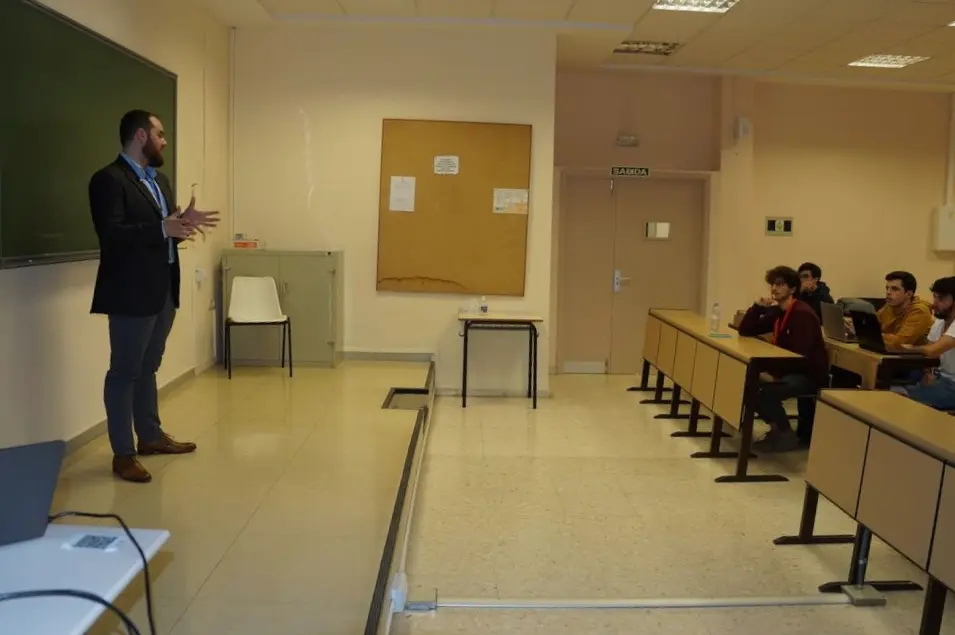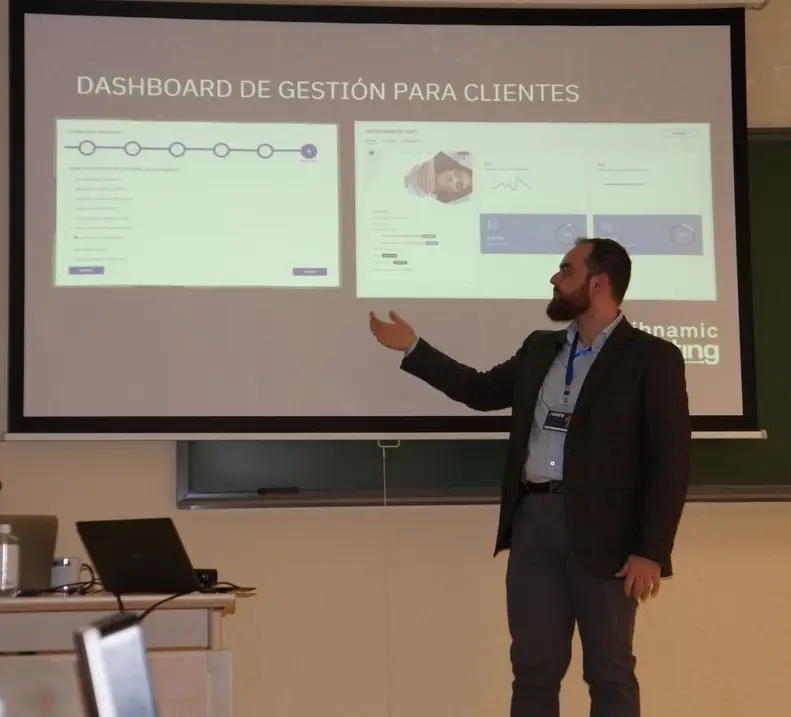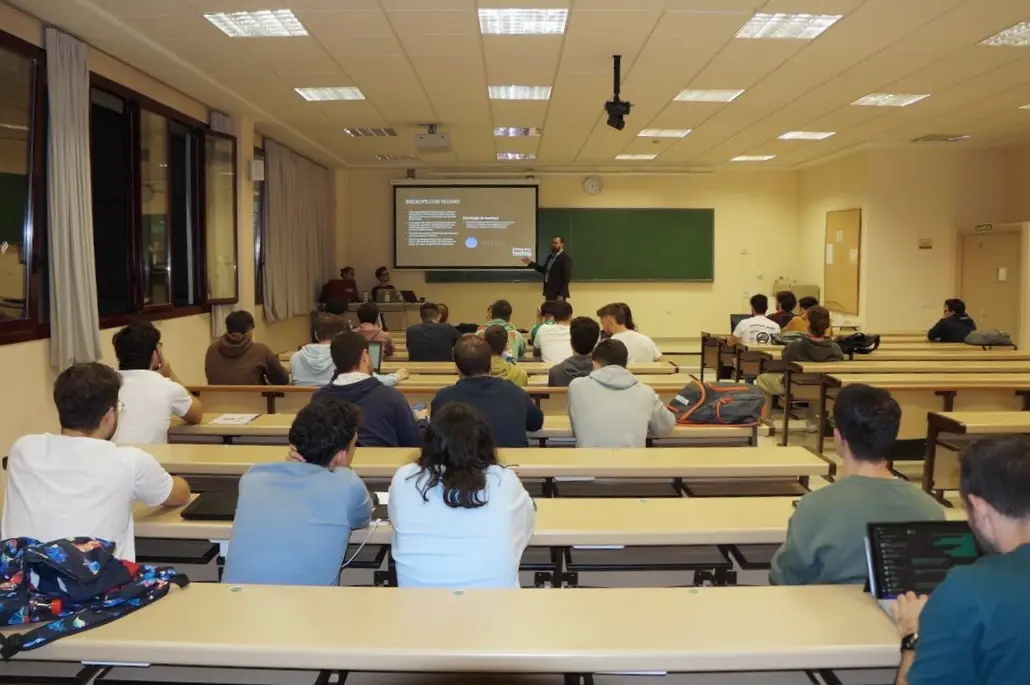Presentado por Jesús Bocanegra, Ingeniero en Telecomunicaciones y fundador de Libnamic, explica como montar un negocio de hosting distinto usando software libre y desarrollos propios.
Los objetivos que queríamos mostrar en esta ponencia eran: demostrar que se puede crear un hosting rápido dentro de un software libre, sin nigún tipo de fallo y con un soporte fácil y accesible. ¿Cuál es nuestra solución? Usar clusters de kubernetes, un software que poca gente conocía durante la exposición.
¿Y qué son los Kubernetes? son servidores con software propio que automatizan el despliegue en servidor, implementando servicios de medición que provean de métricas fiables con las que poder comparar con otros servicios de hosting.
«Montar un hosting tradicional es muy fácil, pero montar esta infraestructura es mucho más complicado»

¿Cómo hemos llegado a la conclusión sobre la fiabilidad de esta infraestructura? Este camino significa mucho tiempo invertido en investigación, desarrollo de herramientas propias, una gran inversión, contínuos análisis de errores... Algunas tareas para llegar hasta este punto podrían ser: Investigación para desplegar las aplicaciones deseadas en Kubernetes de forma eficiente; encontrar un proveedor de servidores que cumpla (coste, rendimiento y disponibilidad); desarrollo de soluciones propias; comparación de velocidad con otros hostings, entre otras.
Nuestra solución en Libnamic es, a través de un nuevo concepto de Hosting, democratizar el acceso a estas nuevas tecnologías, de forma que cualquier empresa pueda beneficiarse aunque no tenga un equipo técnico ni una inversión impresionante.
Objetivos
- Hosting más moderno y basado en las tecnologías actuales.
- Usando software libre complementado con desarrollos propios.
- Hosting rápido: conversiones, SEO, experiencia de usuario…
- Manteniendo precios normales.
- Que las cosas funcionen sin más.
- Prevención de problemas comunes.
- Estar ahí para el usuario como socio tecnológico.
- Valor añadido: por ejemplo, gestión centralizada de Wordpress.
¿Cómo?
- Cluster de Kubernetes.
- Usando servidores dedicados con buen hardware, no cloud.
- Desarrollos internos para automatizar el despliegue, la administración del negocio y la gestión por parte de los usuarios.
- Medición: para ver si estamos en el camino correcto y demostrarlo a los clientes.
Jesús explicó un poco más sobre los requisitos del cluster de kubernetes, selección de proyectos de software libre, volúmenes en red con copia local, buckups con velero, y diseño de despliegues para llegar a una mejora en el rendimiento.
Este sistema más complejo, demostró ser mucho más flexible que la de nuestros competidores directos, y de una respuesta mucho más rápida.
Fotografías hechas por: Jose Luis García Marín.



